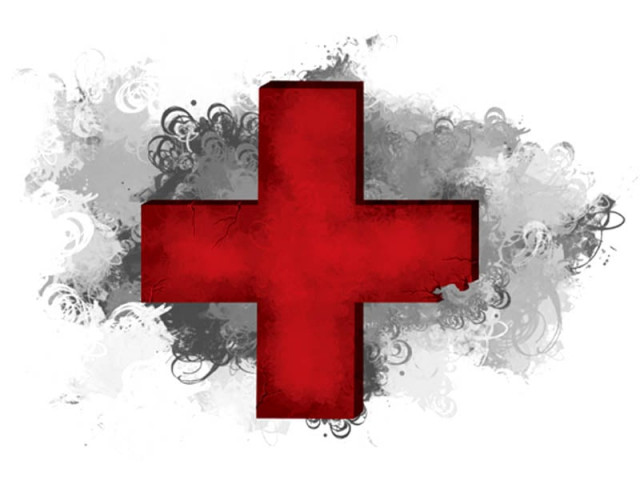Open for all: ‘Inclusive education better for children with Down syndrome’
Speakers at AKU seminar say patients can lead productive lives if given due care.

Speakers at AKU seminar say patients can lead productive lives if given due care. PHOTO: FILE
Children with Down syndrome must be given the opportunity to thrive in a normal setting and must not be isolated from their peers by being admitted in special schools.
This was stressed by health experts at a special health awareness seminar at the Aga Khan University Hospital (AKUH) on Friday. The genetic condition, which affects approximately one in every 800 children in the country, can be managed through proper care and by giving the patients due attention.
“The myth that all Down sufferers are mentally handicapped is certainly not true,” said a speaker. “Don’t ever underestimate these children because they also have the potential to serve people and the society.” The session, attended by several Down sufferers also featured the artworks of Madiha Hussain, a Down sufferer, who overcame her handicap and is now employed as an art teacher at a private school.
Sharing her belief that these children can achieve whatever they desire, her mother, Fauzia Hussain, stressed that it was imperative upon all society members to give special attention to such children. “These children have special needs but there is no reason why they should not grow up to be productive members of society. I did not ever consider Madiha’s condition as a disability,” she said.
Down syndrome is caused by a mutation on the 21st chromosome - a strand of DNA which carries genetic information - at the time of conception which eventually leads to varying degrees of physical and learning impairments. There are normally 46 chromosomes in each cell - 23 inherited from the mother and 23 from the father. When some or all of a person’s cells have an extra full or partial copy of chromosome 21, the result is Down syndrome.
“While there is a strong link to the disease with increased maternal age, young mothers can have children with the syndrome too,” said Dr Khadija Humayun, assistant professor at the Department of Paediatrics and Child Health.
She added that such children have poor muscle tone and are slow to learn basic physical activities like turning over, sitting, standing and walking. “Though it may take them longer to reach normal developmental milestones, they will eventually meet them,” Dr Humayun stressed.
Prof. Shahnaz Ibrahim, an associate professor at Department of Paediatrics and Child Health and one of Pakistan’s few paediatric neurologists, said it was lamentable that these children remained in isolation. “They need their parents’ as well as the society’s due attention. They can’t easily express their intentions, therefore, their irritation increases,” she informed. “Language and speech delays aside, children with Down syndrome have relatively shorter attention spans, poor judgment and often act impulsively. Parents need to be on constant alert regarding their safety.”
She was of the view that schools for special children across the world had disappeared and the children were receiving their formal education in regular schools. “In Pakistan, however, these schools still exist. There should be a uniform education system for all children,” Prof. Ibrahim urged.
Meanwhile, all child health experts agreed that, with appropriate support and treatment, children suffering from Down syndrome can lead happier and productive lives.
“In the West, the average life expectancy for people with Down syndrome has increased dramatically from 25 years in 1983 to 60 years today. We must strive to replicate their success,” revealed Prof. Mehnaz Atiq, a paediatric cardiologist.
Dr Nabila Soomro, Noorudin Siddiqui and others also spoke at the occasion and urged the participants to play their due roles, adding that children with Down syndrome should be treated with the utmost care to equip them for a better future.
Published in The Express Tribune, October 6th, 2013.



















COMMENTS
Comments are moderated and generally will be posted if they are on-topic and not abusive.
For more information, please see our Comments FAQ